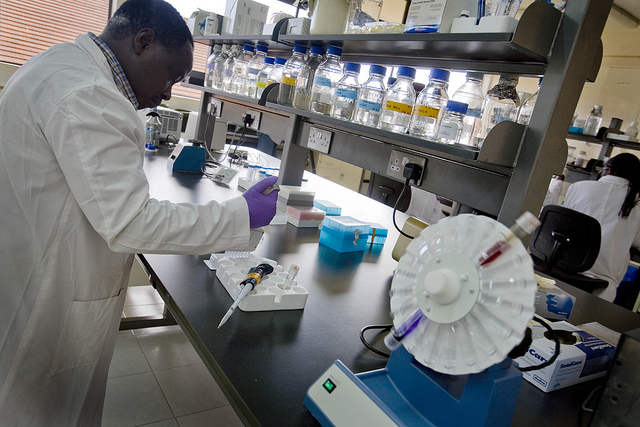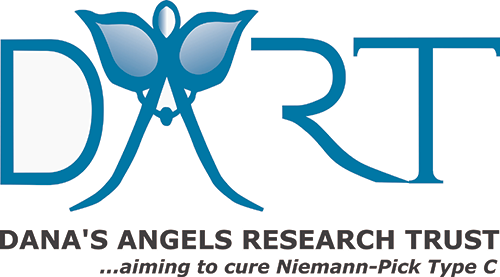
December 11, 2023
- Topline data from the study, expected in mid-2024, will support two pivotal Phase 3 trials in GM1 and GM2 Gangliosidoses, and Niemann-Pick disease type C
- Number of patients recruited onto the RAINBOW trial exceeded the target
- The aim of the RAINBOW study is to determine the pharmacodynamics and pharmacokinetics of two different doses of nizubaglustat in patients
Leiden, The Netherlands, 11 December 2023 – Azafaros B.V. today announces that it has exceeded the target number of patients in the enrollment of its Phase 2 clinical trial, RAINBOW (NCT05758922), treating patients with severe rare metabolic diseases.
The success in enrollment is a major milestone for Azafaros’ lead asset, nizubaglustat, which is being developed to treat patients with GM1 and GM2 gangliosidoses, and Niemann-Pick disease type C (NPC).
The 12-week study is a randomised, double-blind, placebo-controlled, multi-center trial which evaluates the safety, tolerability, pharmacokinetics, and pharmacodynamics across two doses of nizubaglustat in patients with GM2 gangliosidosis and NPC.
The trial is being conducted at sites across Brazil, with safety, pharmacokinetic and pharmacodynamic data from ongoing patient follow-ups expected in mid-2024.
The aim of the RAINBOW study is to determine the pharmacodynamics and pharmacokinetics of two different doses, in order to identify the target dosage for Azafaros’ planned Phase 3 pivotal studies.
Professor Roberto Giugliani, MD, Chief of the Medical Genetics Service at the Hospital Clinicas de Porto Alegre in Brazil and Lead Principal Investigator for the RAINBOW study, said:
“We are pleased to be involved in this important study. Patients with GM1 and GM2 gangliosidoses currently have no approved specific therapeutic options, and improved therapies for NPC patients will be welcomed by clinicians, the patients, and their families.”
Dr Daniel Almeida do Valle is a paediatric neurologist at the Hospital Pequeno Príncipe in Curitiba, Brazil, who enrolled a considerable number of patients onto the RAINBOW study.
“It is a great achievement in a clinical trial to exceed the target number of patients, especially with such rare diseases as GM2 and NPC,” he commented.
“RAINBOW is a very important study which will enable Azafaros to find the correct doses which can treat patients in the future,” he added. “It will increase our knowledge for the future development of nizubaglustat, and we are truly grateful for the patients’ participation in the study.”
Dr Stefano Portolano, CEO at Azafaros, said: “Exceeding the recruitment goal is an important step forward in our ambition to provide a new therapeutic solution for these rare lysosomal storage disorders, where patients have no or limited treatment options. Our team has worked tirelessly to reach this point and the focus is now on preparing the next steps for two Phase 3 studies. We would like to thank all patients, their families, patient organisations and clinicians for their participation and support in this important research.”
About Nizubaglustat
Nizubaglustat is a small molecule, orally available and brain penetrant with a unique dual mode of action, with the potential to treat rare lysosomal storage disorders with neurological involvement, including GM1 and GM2 gangliosidoses, and Niemann-Pick disease type C (NPC).
Nizubaglustat received three Rare Pediatric Disease Designations (RPDD) from the United States Food and Drug Administration (FDA) for the treatment of GM1 and GM2 Gangliosidoses, and NPC. The asset also received Orphan Medicinal Product Designation (OMPD) from the European Medicines Agency (EMA) for the treatment of GM2 gangliosidosis, as well as an Innovation Passport from the UK Medicines and Healthcare Products Regulatory Agency (MHRA) for the treatment of GM1 and GM2 gangliosidoses.
The compound received Fast Track Designation for GM1 and GM2 gangliosidoses as well as NPC and Orphan Drug Designations (ODD) for GM2 gangliosidosis (Sandhoff and Tay-Sachs Diseases) and NPC from the FDA.
About GM1 and GM2 Gangliosidoses
GM1 gangliosidosis and GM2 gangliosidosis (Tay-Sachs and Sandhoff diseases) are lysosomal storage disorders caused by the accumulation of GM1 or GM2 gangliosides, respectively, in the central nervous system (CNS), resulting in progressive and severe neurological impairment and early death. These diseases mostly affect infants and children, and no disease-modifying treatments are currently available.
About Niemann-Pick Disease Type C (NPC)
Niemann-Pick disease type C (NPC) is a progressive, life-limiting neurological lysosomal storage disorder caused by mutations in the NPC1 or NPC2 gene and aberrant endosomal-lysosomal trafficking, leading to the accumulation of various lipids, including gangliosides in the CNS. The onset of disease can happen throughout the lifespan of an affected individual, from prenatal life through adulthood.
About Azafaros
Azafaros is a clinical-stage company founded in 2018 with a deep understanding of rare genetic disease mechanisms, a compound library from Leiden University, and led by a team of highly experienced industry experts. Azafaros aims to build a pipeline of disease-modifying therapeutics, to offer new treatment options to patients and their families. By applying its knowledge, network, and courage, the Azafaros team challenges traditional development pathways to rapidly bring new drugs to the rare disease patients who need them. Azafaros is supported by a syndicate of leading Dutch and Swiss investors including Forbion, BioGeneration Ventures (BGV), BioMedPartners, and Schroders Capital.
For futher information:
Azafaros B.V.
Email: info@azafaros.com
www.azafaros.com

